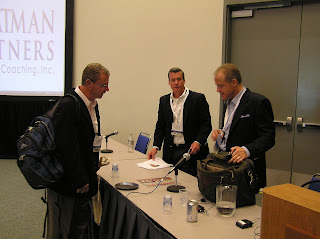Webster defines objectivity as “treating or dealing with facts without distortion by personal feelings or prejudices.” No one can divorce feelings completely from decisions or judgments. Feelings are part of being human and in fact, having feelings make us human. However, as a business leader, you need to remain vigilant that feelings don’t over ride facts.
People issues are fertile ground for distorting objectivity. When we think about the quality of our people, we often have our favorites. People we have personally hired are in this category as well as people who have qualities similar to our own. All of this can lead to a serious leadership trap: overestimating the talent of your organization.
This is a common tendency we often observe, even at the highest levels. It can seriously impact performance, morale, and succession planning. One way to avoid this trap is to BE AWARE and honest about your feelings when it comes to people in your organization. Seek outside evaluations from time to time as well. A third party can see things that you simply can’t.
Having strong people in the right roles is the surest way to drive high performance. By accepting your human vulnerabilities, you can protect your objectivity and increase the effectiveness of your team.









